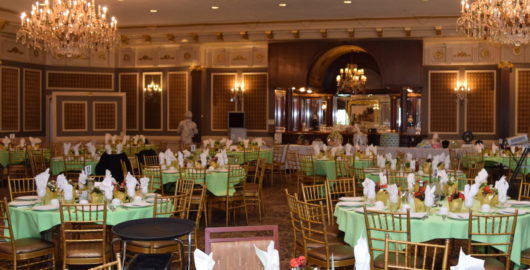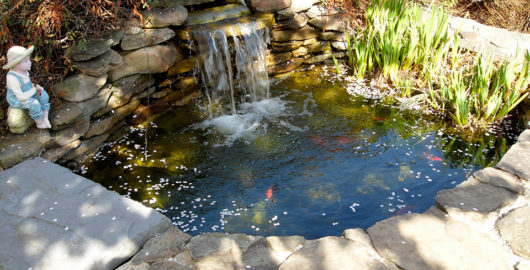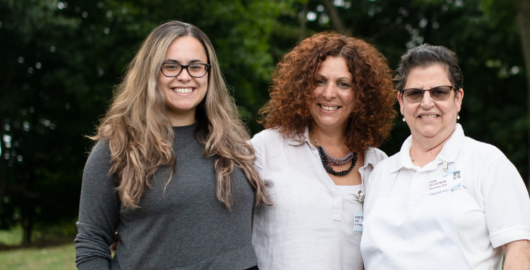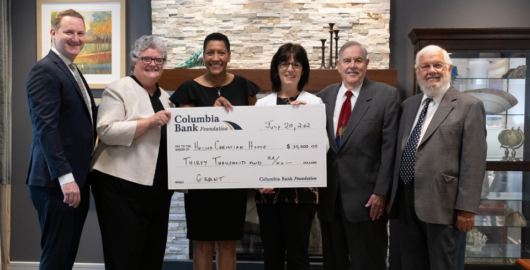After an unannounced, on-site survey by a team from the New Jersey Department of Health (NJDOH), the Holland Christian Home has been rated “deficiency-free” by NJDOH for the year 2020.
After an unannounced, on-site survey by a team from the New Jersey Department of Health (NJDOH), the Holland Christian Home has been rated “deficiency-free” by NJDOH for the year 2020. This is the third year in a row that the Home has received this distinction — a tremendous honor!
To understand why being deficiency-free is so impressive, it helps to know a little about how the government interacts with places like the Home. What follows is a “peak behind the curtain” to give you an insider’s perspective of this remarkable honor.
Unannounced Annual Surveys
Every 12-15 months, surveyors from NJDOH arrive at the Holland Christian Home to conduct a multi-day, on-site inspection. This team of regulators includes a licensed RN, dietician, pharmacist and life safety expert. By observing the staff, environment, and day-to-day operations of the Home — as well as by speaking with staff and residents and reviewing scores of the Home’s documentation — surveyors dig deep to make sure that the Home is following every state and federal law.
This is no small endeavor. Because the Holland Christian Home offers both residential and skilled nursing wings, the Home is bound by two sets of regulations. Each of them are complex.
On the residential side, surveyors use New Jersey Administrative Code as their reference point. Every category of day-to-day operations is regulated: Dining, activities, social work, pharmaceuticals, emergency procedures, housekeeping, infection control and more. Currently, there are 370+ sections of these NJ regulations, spread across more than 90 sub-chapters, that apply to the Home.1 In other words, there are a lot of regulations!
In Mountain View, the Home’s skilled nursing unit, standards are even more numerous. Although the Home does not accept Medicare or Medicaid, it is still expected to adhere to all federal rules and regulations. So, when surveyors inspect Mountain View, they use the Center for Medicare and Medicaid Service’s Long Term Care Survey Manual & Surveyor’s Guide as their foundation.
This manual is over 900 pages long. There are over 370 kinds of regulations denoted in the manual, many of them divided into multiple parts.
After four days at the Holland Christian Home in February 2020, a team of six NJDOH surveyors gave the Home a report with no deficiencies. This is the third year in a row the Home has received such a report.
How Does the Home Compare?
To set this achievement in context: From 2010 through 2014, 16 percent or fewer New Jersey skilled nursing facilities the size of the Home’s (50-99 beds) achieved deficiency-free ratings according to the Centers for Medicare and Medicaid Services’ (CMS) 2015 Nursing Home Data Compendium, the most recent available. Fewer than 14 percent of all nursing homes in the state achieved similar results.
More recent data, provided in a 2018 CASPER2 report from CMS, indicates that fewer than 11 percent of NJ facilities were deficiency-free that year.
“It’s not like facilities receive a couple of deficiencies and move on with business as usual,” says the Home’s Executive Director & Administrator Carlos G. Beato. “There are facilities that are cited with 60 pages or more in a single year.”
Three consecutive clean surveys seem especially improbable under the backdrop of a massive construction and renovation project. On-going demolitions, renovations, and totally re-created units bring an exceptional number of regulations to the forefront that otherwise might not be relevant.
Nationwide, the most commonly cited deficiencies relate to food preparation, infection control and hazard prevention. Even if a facility is doing well in a certain area at the time of a survey, surveyors can easily identify and cite past lapses. Reams of mandatory documentation make it virtually impossible to hide errors.
Building on Success
When surveyors don’t levy any deficiencies on an organization, they still find areas that need improvement or correction. When they come back the next year, these areas receive special attention. Surveyors want to know if the organization did what needed to be done.
“There’s a trust. I was a surveyor myself for ten years. If you show yourself to be responsible, that impacts the survey. But you don’t want to break that trust.”
Carlos G. Beato, LNHA, RN, Executive Director/Administrator
The Home takes that trust seriously – just like it takes resident care seriously. Through the Quality Assurance & Performance Improvement (QAPI) program, dozens upon dozens of responsibilities in every department are monitored. When there are opportunities for improving any of these services, departments undertake year-long projects to implement changes and judge the effectiveness of those changes. These projects can show surveyors how proactive an organization is. They indicate whether the organization has both self-identified and begun addressing areas for improvement.
Administrator of Residential Services Carole Dykhouse, who runs the Home’s QAPI program, notes that the Home’s program “has grown wonderfully over the last three years. By not having any deficiencies in need of correction, we are able to focus our time and efforts on innovating and making every aspect of our care and services stronger in both the short-term and long-term.”
Examples of innovation include committee-style performance improvement teams (known as PIPs) that bring interdisciplinary staff, residents, and even Board members together to brainstorm and implement advances in specific areas. Within the past two years, PIPs have resulted in improvements in security, pharmaceuticals and more.
Is a Deficiency-Free Survey the Same Thing as a 5-Star Rating?
The commonly recognized “5-Star Rating” awarded by CMS to exemplary facilities is not available to the Home simply because CMS does not rate the Home. Because the Home does not accept Medicare or Medicaid, it is not officially rated by the Centers for Medicare and Medicaid Services (CMS).
Having a deficiency-free state survey is not the same as receiving a 5-star CMS rating. CMS ratings are calculated based not only on these health inspection ratings but also on additional standards such as staffing ratings and quality measure ratings.
We can’t know what the Home’s staffing rating would be, since this rating is based on CMS formulas. But we can infer that it would be above average. Publicly available NJDOH data shows that Mountain View has had an average of twice as many RNs per resident on each shift as the average skilled nursing facility in New Jersey. LPN and CNA ratios have been similarly at-or-above average throughout 2019.
After three years of tremendous efforts, the Holland Christian Home has much to be proud of. “This success does not occur in a vacuum,” said Beato. “It takes a village. I am proud of our staff and their hard work and dedication on behalf of our residents each and every day.”
1 N.J.A.C. Chapters 36, 39 and 43
2 Stands for Certification and Survey Provider Enhanced Reporting




